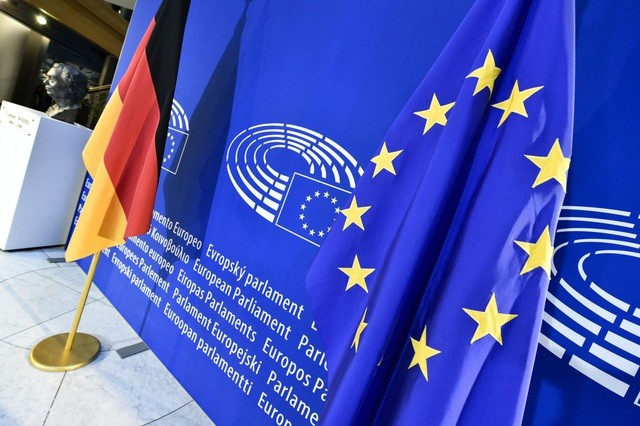(VOVWORLD) - Germany officially assumed the EU Presidency on Monday for a 6-month term. With the many challenges currently facing the EU, Germany’s presidency is predicted to be a difficult one.
 (Photo: EU archives) (Photo: EU archives) |
Germany has been preparing for this leadership role by focusing on greenhouse gas containment measures, post-Brexit relations with the UK, and a draft budget for the EU. But the COVID-19 pandemic has forced Germany to table those priorities and focus on defeating the pandemic, reviving the economy, and preparing the EU to deal with future crises.
Challenges encountered
In EuropeCOVID-19 has claimed 140,000 lives, placed hundreds of millions of people in lockdown, and wreaked havoc on the economy. The European Commission said in a recent report that the European economy will shrink 7.4% this year. All EU members will suffer a serious recession, with Greece, Italy, Spain, Croatia, and France the hardest hit. France’s economy could contract 8.2% this year. The GDP of Germany, Eurozone’s biggest and export-dependent economy, could drop 6.5% in 2020. Europe’s unemployment rate is projected to surge from 7.5% last year to 9% this year.
Another challenge is a wide divide between EU members in COVID-19 response. On May 27, European Commission President Ursula von der Leyen proposed a rescue package worth 750 billion euros to help Europe recover from COVID-19. But the plan is opposed by Austria, the Netherlands, Sweden, and Denmark, who want the EU to provide loans instead of subsidies.
Strict border controls have disrupted intra-bloc trade and undercut the ideal of a borderless Europe. The current crisis has pushed EU members into unprecedented difficulties economically and socially, demanding assertive solutions from Germany as EU President.
Problems arose on the first day of Germany’s presidency. On Wednesday, Berlin declared a postponement of the EU-China Summit scheduled for September in the German city of Leipzig. Chancellor Angela Merkel has pinned great hopes on this summit as an opportunity to get China to honor its commitment to reciprocal trade with the EU.
The EU is also poised to resolve its relationship with Russia, who may pose security challenges, but cooperation with whom, particularly in energy, cannot be ignored.
Germany’s priorities
Germany clearly understands that the EU Presidency is a tough assignment. In a statement in late April, Chancellor Merkel said Germany will surely be occupied by the fight against COVID-19 and its fallout. She warned that the virus will continue to damage life in Europe until a vaccine is developed. But she insisted that climate change will be just as important as healthcare issues. Germany will push for an effective healthcare system for all EU members, taxes on financial transactions, minimum taxes, and a system of carbon credits for ships and airplanes.
Germany, President of the EU neither for the first time nor for the last time, will be facing one of the most difficult times in EU history since the EU was founded in 1993.